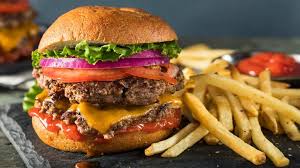
Can cell therapy beat the most difficult diseases?
That’s the question posed in a headline in National Geographic. The answer; maybe, but it is going to take time and money.
The article focuses on the use of iPS cells, the man-made equivalent of embryonic stem cells that can be turned into any kind of cell or tissue in the body. The reporter interviews Kemal Malik, the member of the Board of Management for pharmaceutical giant Bayer who is responsible for innovation. When it comes to iPS cells, it’s clear Malik is a true believer in their potential.
“Because every cell in our bodies can be produced from a stem cell, the applicability of cell therapy is vast. iPSC technology has the potential to tackle some of the most challenging diseases on the planet.”
But he also acknowledges that the field faces some daunting challenges, including:
- How to manufacture the cells on a large scale without sacrificing quality and purity
- How do you create products that have a stable shelf life and can be stored until needed?
- How do you handle immune reactions if you are giving these cells to patients?
Nonetheless, Malik remains confident we can overcome those challenges and realize the full potential of these cells.
“I believe human beings are on the cusp of the next big wave of pharmaceutical innovation. The use of living cells to make people better.”
As if to prove Malik right there was also news this week that researchers at Japan’s Keio University have been given permission to start a clinical trial using iPS cells to treat people with spinal cord injuries. This would be the first of its kind anywhere in the world.
Japan launches iPSC clinical trial for spinal cord injury

An article in Biospace says that the researchers plan to treat four patients who have suffered varying degrees of paralysis due to a spinal cord injury. They will take cells from the patients and, using the iPS method, turn them into the kind of nerve cells found in the spinal cord, and then transplant two million of them back into the patient. The hope is that this will create new connections that restore movement and feeling in the individuals.
This trial is expected to start sometime this summer.
CIRM has already funded a first-of-its-kind clinical trial for spinal cord injury with Asterias Biotherapeutics. That clinical trial used embryonic stem cells turned into oligodendrocyte progenitor cells – which develop into cells that support and protect nerve cells in the central nervous system. We blogged about the encouraging results from that trial here.
High fat diet drives colorectal cancer

Finally today, researchers at Salk have uncovered a possible cause to the rise in colorectal cancer deaths among people under the age of 55; eating too much high fat food.
Our digestive system works hard to break down the foods we eat and one way it does that is by using bile acids. Those acids don’t just break down the food, however, they also break down the lining of our intestines. Fortunately, our gut has a steady supply of stem cells that can repair and replace that lining. Unfortunately, at least according to the team from Salk, mutations in these stem cells can lead to colorectal cancer.
The study, published in the journal Cell, shows that bile acids affect a protein called FXR that is responsible for ensuring that gut stem cells produce a steady supply of new lining for the gut wall. When someone eats a high fat diet it upsets the balance of bile acids, starting a cascade of events that help cancer develop and grow.
In a news release Annette Atkins, a co-author of the study, says there is a strong connection between bile acid and cancer growth:
“We knew that high-fat diets and bile acids were both risk factors for cancer, but we weren’t expecting to find they were both affecting FXR in intestinal stem cells.”
So next time you are thinking about having that double bacon cheese burger for lunch, you might go for the salad instead. Your gut will thank you. And it might just save your life.
Great article, congratulations. This type of nutrition is extremely harmful to our health.